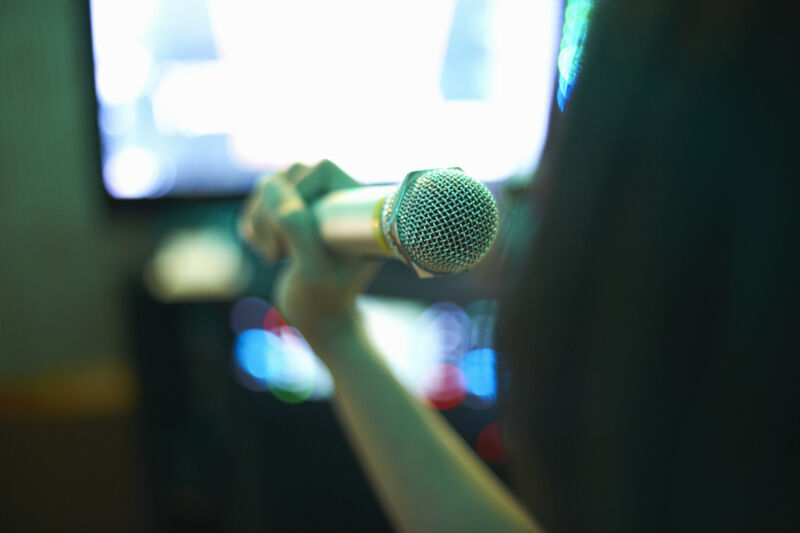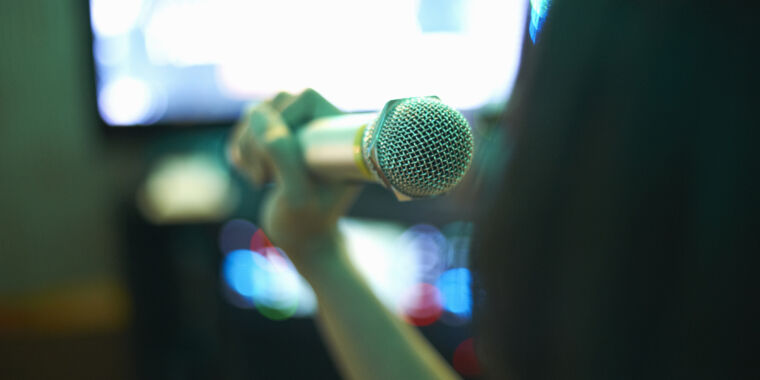
Singing off-key in front of others is one way to get embarrassed. Regardless of how you get there, why does embarrassment almost inevitably come with burning cheeks that turn an obvious shade of red (which is possibly even more embarrassing)?
Blushing starts not in the face but in the brain, though exactly where has been debated. Previous thinking often reasoned that the blush reaction was associated with higher socio-cognitive processes, such as thinking of how one is perceived by others.
After studying subjects who watched videos of themselves singing karaoke, however, researchers led by Milica Nicolic of the University of Amsterdam have found that blushing is really the result of specific emotions being aroused.
Nicolic’s findings suggest that blushing “is a consequence of a high level of ambivalent emotional arousal that occurs when a person feels threatened and wants to flee but, at the same time, feels the urge not to give up,” as she and her colleagues put it in a study recently published in Proceedings of the Royal Society B.
Taking the stage
The researchers sought out test subjects who were most likely to blush when watching themselves sing bad karaoke: adolescent girls. Adolescents tend to be much more self-aware and more sensitive to being judged by others than adults are.
The subjects couldn’t pick just any song. Nicolic and her team had made sure to give them a choice of four songs that music experts had deemed difficult, which is why they selected “Hello” by Adele, “Let it Go” from Frozen, “All I Want For Christmas is You” by Mariah Carey, and “All the Things You Said” by tATu. Videos of the subjects were recorded as they sang.
On their second visit to the lab, subjects were put in an MRI scanner and were shown videos of themselves and others singing karaoke. They watched 15 video clips of themselves singing and, as a control, 15 segments of someone who was thought to have similar singing ability, so secondhand embarrassment could be ruled out.
The other control factor was videos of professional singers disguised as participants. Because the professionals sang better overall, it was unlikely they would trigger secondhand embarrassment.
Enough to make you blush
The researchers checked for an increase in cheek temperature, as blood flow measurements had been used in past studies but are more prone to error. This was measured with a fast-response temperature transducer as the subjects watched karaoke videos.
It was only when the subjects watched themselves sing that cheek temperature went up. There was virtually no increase or decrease when watching others—meaning no secondhand embarrassment—and a slight decrease when watching a professional singer.
The MRI scans revealed which regions of the brain were activated as subjects watched videos of themselves. These include the anterior insular cortex, or anterior insula, which responds to a range of emotions, including fear, anxiety, and, of course, embarrassment. There was also the mid-cingulate cortex, which emotionally and cognitively manages pain—including embarrassment—by trying to anticipate that pain and reacting with aversion and avoidance. The dorsolateral prefrontal cortex, which helps process fear and anxiety, also lit up.
There was also more activity detected in the cerebellum, which is responsible for much of the emotional processing in the brain, when subjects watched themselves sing. Those who blushed more while watching their own video clips showed the most cerebellum activity. This could mean they were feeling stronger emotions.
What surprised the researchers was that there was no additional activation in areas known for being involved in the process of understanding one’s mental state, meaning someone’s opinion of what others might think of them may not be necessary for blushing to happen.
So blushing is really more about the surge of emotions someone feels when being faced with things that pertain to the self and not so much about worrying what other people think. That can definitely happen if you’re watching a video of your own voice cracking at the high notes in an Adele song.
Proceedings of the Royal Society B, 2024. DOI: 10.1098/rspb.2024.0958

